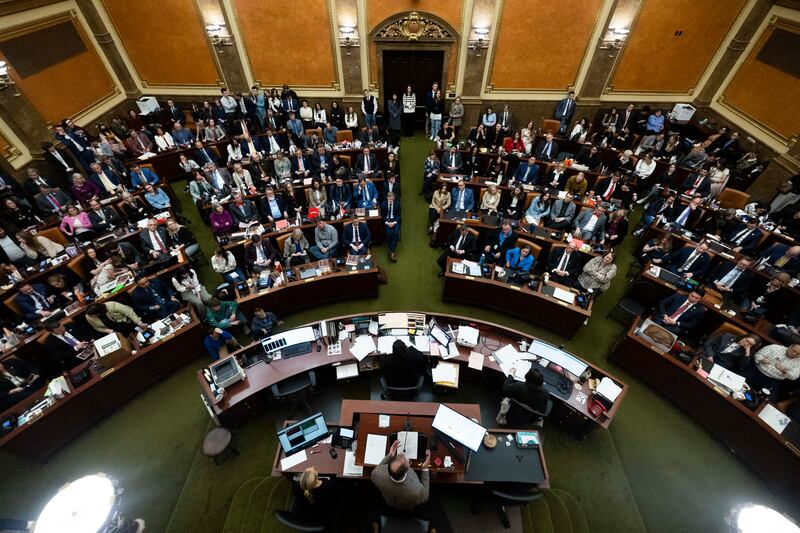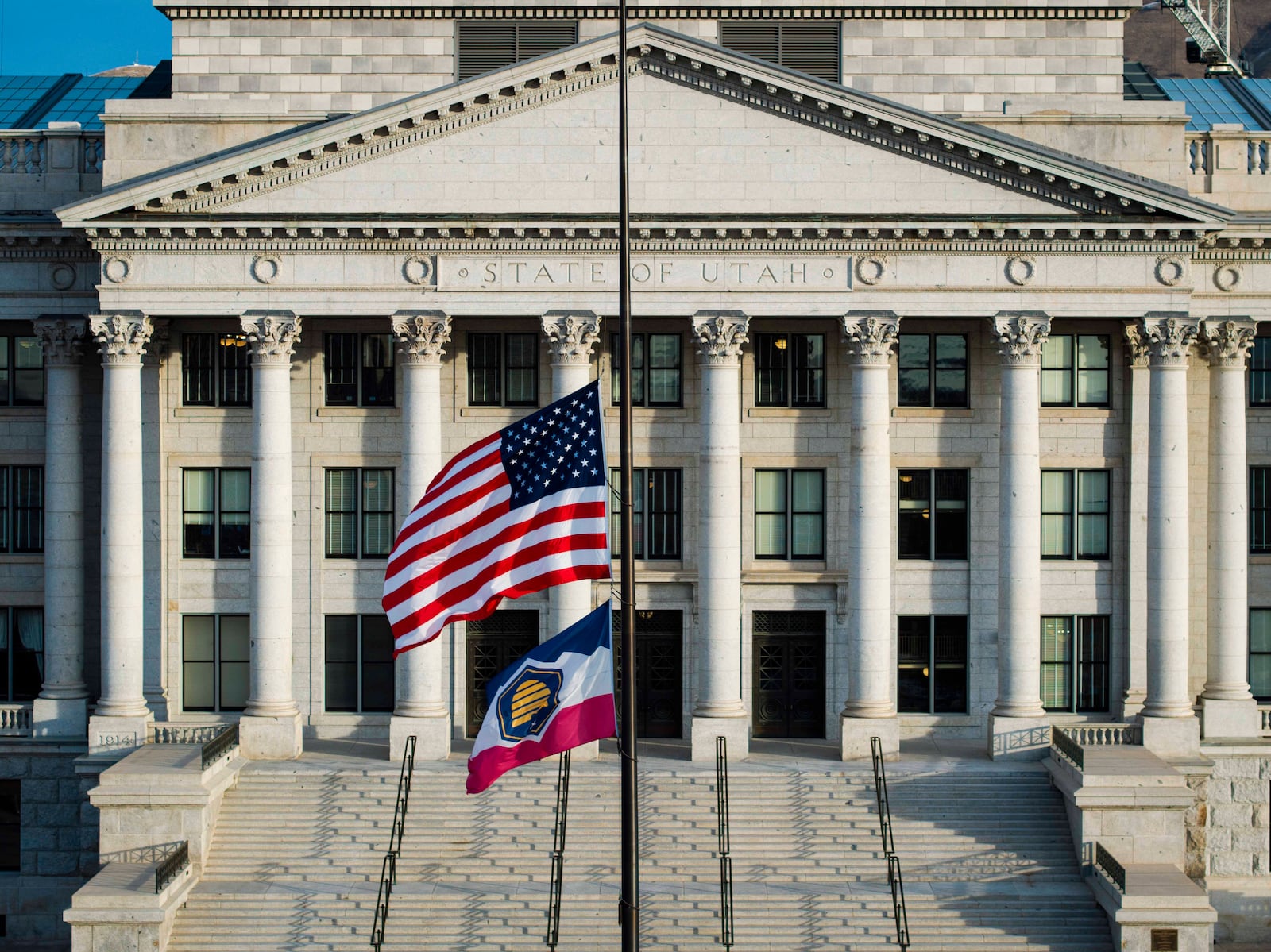This story appears in the April 2025 issue of Utah Business. Subscribe.
The 2025 legislative session wrapped up at midnight on March 7, having passed 582 bills — second only to last year’s 591. Here are some of this year’s bills that will affect Utah businesses.
Economic development
HB441 allows Utah franchisees to close their businesses on Sundays or other religiously observed days if being open would conflict with their sincerely held religious beliefs. This bill also requires all new franchise agreements to clearly disclose any mandate to the contrary by the franchisor and provides stiff enforcement penalties if a franchisor violates these protections. Fines of up to $10,000 for a first violation, $25,000 for a second and $50,000 for subsequent violations can be levied.
HB542 repeals the Unified Economic Opportunity Commission under the governor’s office and its associated subcommittees, which are the Subcommittee on Housing Affordability and the Women in the Economy Commission. It also amends provisions of the Governor’s Office of Economic Opportunity, which is tasked with developing a statewide economic policy that meshes with the state water policy and developing strategies to help rural Utah, among other responsibilities.
SB333 and SB336 impact both taxes and land use for stadiums and sports venues, including venues for the 2034 Winter Olympics in Utah. SB333 would allow for cities or counties to create a major sporting event venue zone, which would then allow them to collect up to 75 percent of the property tax increment collected and 100 percent of local sales and use tax over 25-40 years to cover the cost of projects. SB336 broadens permissible uses for a fair park land lease and modifies taxing authority provisions related to the Fairpark district or a host municipality. It allows sales tax dollars to start paying for construction costs before a Major League Baseball team is awarded to Utah and allows money to be spent on cleanup and security “relating to outdoor recreation infrastructure.”
SB26 allows sales and use tax revenue distributed to a county to be used for convention center revitalization. Last year, Salt Lake City approved a sales tax hike that could send $900 million to the downtown sports, entertainment and convention district. This bill would allow for the same amount to be collected in taxes and then used to upgrade the Salt Palace Convention Center over the next 30 years.
SB239 expands the Utah Inland Port Authority’s purchasing and development influence on adjacent lands, changes board composition to include business expertise, and permits using revenue to help other governmental entities fulfill the Utah Inland Port Authority’s duties. The bill also creates protected status for business proposals under review and requires annual evaluation of statutory objectives.
SB62 creates a “Spaceport Exploration Committee” that will study the feasibility of establishing a spaceport in Utah. This will include a market analysis, an economic impact assessment, cost estimates and potential site evaluations. Activities of a Utah-based spaceport could include satellite launches, scientific missions, national defense missions, commercial space flights, space exploration, space tourism and more.
HB106 gives Utah individuals and corporations a fifth year of tax cuts, lowering the income tax rate from 4.55 percent to 4.5 percent. The bill also gives businesses a 20 percent nonrefundable tax credit for building and operating a child care facility for their employees.

Licensing
The Utah Office of Professional Licensure Review (OPLR) provides “a regular, systematic, objective review of the requirements for each regulated occupation in the state of Utah.” SB330 comes as a result of OPLR’s review of Utah’s cosmetology license requirements. This bill restructures the licensing board, creates a barbering permit that allows a person to cut hair and shave facial hair with 130 hours of training, creates a basic esthetician permit with 200 hours of training, and drops the required number of hours for a cosmetology license from 2,000 hours of training to 1,250. The bill also authorizes apprenticeship as a valid way of obtaining a license to practice.
SB17 makes the process of licensing in Utah easier for Department of Defense families. If an employee of the Department of Defense or their spouse has a professional license in another jurisdiction, they will be able to practice in Utah. This bill also provides in-state tuition for employees and members of their families and makes it easier for them to enroll their children in K-12 schools.
SB44 standardizes the background check requirements for professional licensure. It includes submission of fingerprints and checking with both the Federal Bureau of Investigation and the Bureau of Criminal Identification. If an applicant does not disclose previous criminal history that is then discovered after they are licensed, they are subject to immediate revocation of that license.
Workforce development
Utah House Speaker Mike Schultz ran a bill to help expand or create “catalyst centers” for high school students. While presenting the bill during the legislative session, Speaker Schultz said, “For decades, CTE [career and technical education] training has kind of taken a back seat inside of our public education system.” HB447 provides $65 million in one-time funds to support schools and school districts with technical education that aligns with workforce needs. Grant money could be used for capital expenditures, to modify classrooms, to buy up-to-date equipment and for other expenses needed to expand CTE offerings around the state.
HB260 creates a “First Credential program” for high school students and will provide opportunities for industry-recognized credentials to be obtained before leaving high school. It also promotes “stackable” certificates, which enable students to seamlessly transfer certificates earned by attending a technical college to a degree-granting institution. A master list of credentials will be created and workforce needs will be prioritized.
HB131 modifies the Talent Ready Utah program by adding engineering and computer technology to the talent board and clarifying that a talent advisory council must have a minimum of four members with “extensive experience” in that advisory area in the private sector.
HB157 requires Utah’s Office of Energy Development to establish the Energy Education and Workforce Development Advisory Group, develop and maintain energy education programs and curricula for grades K-12, develop and provide professional training for educators, and develop workforce-aligned programs.


